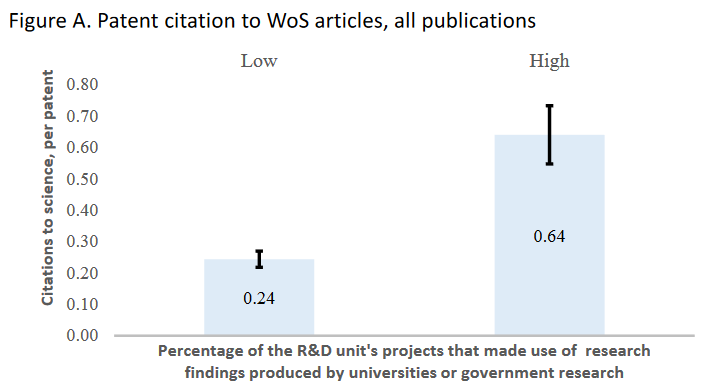Science ==> Technological progress.
Here's a thread on recent research trying to answer that question. #ThursdayThreads #ProgressStudies
Riemann Geometry => Einstein's General Relativity => GPS => fitbit step tracker.
(65% might seem low, but it only became normal to cite scientific papers relatively recently so this could be viewed more as a lower bound).

What happens? The fields that do more basic research end up with more FDA approved drugs and patents.











